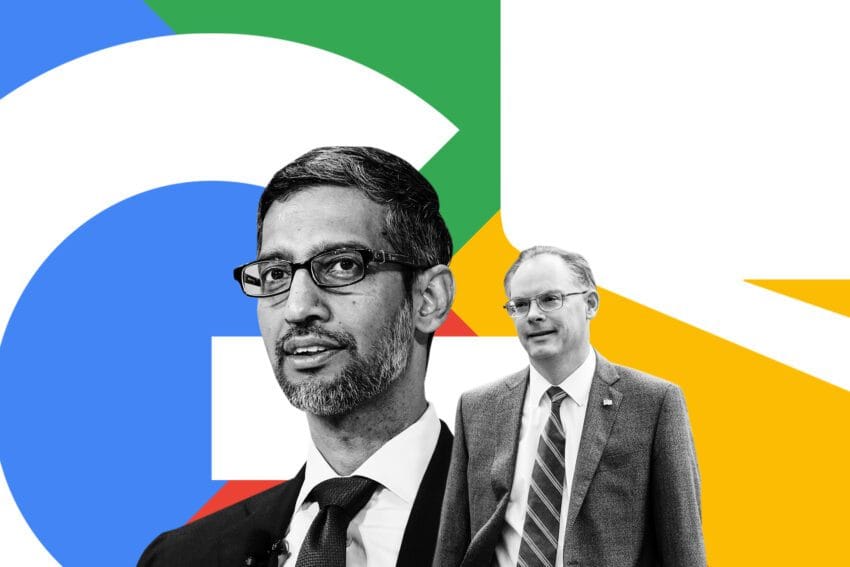
the supreme court is google s last The Ninth Circuit Court of Appeals has issued a ruling that could significantly alter the landscape of app distribution on Android devices, leaving Google with limited options as it faces a deadline to comply with a permanent injunction stemming from the Epic Games lawsuit.
the supreme court is google s last
Background of the Case
The legal battle between Epic Games and Google began in 2020 when Epic challenged the tech giant’s payment policies within the Google Play Store. Epic argued that Google’s requirement for developers to use its proprietary billing system constituted an illegal monopoly. The case gained traction as it highlighted broader concerns about the control major tech companies exert over their platforms and the implications for developers and consumers alike.
On July 31, 2023, the Ninth Circuit ruled in favor of Epic, affirming a jury’s unanimous verdict that found Google’s practices to be monopolistic. This decision marked a significant victory for Epic, setting the stage for the current developments. Following this ruling, Google sought an “en banc” review, hoping to have the entire Ninth Circuit reconsider the case. However, the court’s refusal to re-hear the case has left Google with a stark reality: it must comply with the injunction or face further legal repercussions.
The Permanent Injunction
On Friday, the Ninth Circuit denied Google’s petition for a rehearing, effectively restarting the clock on the injunction that requires the company to make substantial changes to its app store practices. The court has given Google a 30-day deadline to comply with several mandates aimed at dismantling its monopolistic control over app distribution on Android devices. These requirements include:
- Ending the enforcement of Google Play Billing as the sole payment method for apps distributed through the Google Play Store.
- Allowing developers to inform users about alternative payment options.
- Permitting developers to link to external app downloads.
- Enabling developers to set their own pricing structures.
- Ceasing financial incentives or exclusivity agreements with manufacturers and carriers that favor Google Play.
- Collaborating with Epic to establish a system for integrating rival app stores.
Key Provisions of the Injunction
The injunction outlines specific prohibitions that Google must adhere to over the next three years, ending on November 1, 2027. These provisions include:
- Google cannot share revenue generated from the Google Play Store with any entity that distributes Android apps or is considering launching an app distribution platform.
- Google must not condition access to its products or services on agreements that favor exclusivity in the Google Play Store.
- Developers must be allowed to communicate with users about alternative payment methods and app availability outside the Google Play Store.
- Google cannot require the use of its billing system or prohibit other payment methods.
- Google must establish a Technical Committee, jointly selected by Epic and Google, to address any disputes arising from the injunction.
Implications for Google and Developers
The implications of this ruling are profound. For Google, the requirement to allow alternative payment methods and rival app stores could significantly impact its revenue model. The company has long relied on the fees generated from its billing system, which typically takes a 30% cut from developers. By allowing developers to choose their payment methods, Google risks losing substantial income.
For developers, this ruling represents a significant shift in power dynamics. Smaller developers, in particular, may benefit from reduced fees and increased visibility for their apps. The ability to link to external downloads and communicate alternative payment options could foster a more competitive environment, potentially leading to lower prices for consumers.
Stakeholder Reactions
Epic Games has been vocal about its victory, with CEO Tim Sweeney expressing optimism on social media. He stated, “Now Google Play has 30 days to free ALL DEVELOPERS to offer competing payments in the USA — as Apple is required to do — free of scare screens, junk fees, and restrictions!” Sweeney’s comments underscore the broader implications of this ruling, as it aligns with ongoing efforts to challenge monopolistic practices in the tech industry.
However, the response from Google has been more reserved. The company has not yet confirmed whether it will appeal the Ninth Circuit’s decision to the Supreme Court. If Google chooses to pursue this route, it has indicated that it would do so within 45 days of the ruling. The uncertainty surrounding Google’s next steps adds another layer of complexity to an already intricate legal landscape.
Potential Outcomes and Future Considerations
The next 30 days will be critical for Google as it navigates the requirements set forth by the Ninth Circuit. The company must determine how to implement the changes while balancing its business interests. Failure to comply could result in further legal action, potentially exacerbating the situation.
Moreover, the broader implications of this case extend beyond Google and Epic. The ruling could set a precedent for other tech companies, particularly Apple, which has faced similar scrutiny regarding its App Store practices. As regulatory pressures mount globally, this case may serve as a catalyst for further legal challenges against monopolistic practices in the tech industry.
The Role of the Technical Committee
The establishment of a Technical Committee, as mandated by the injunction, will play a crucial role in facilitating compliance and addressing disputes. This committee will consist of three members: one selected by Epic, one by Google, and a third member chosen by the first two. The committee’s primary responsibility will be to review technological processes and issues related to the injunction’s implementation.
The Technical Committee’s effectiveness will be vital in ensuring that both parties can navigate the complexities of integrating rival app stores and alternative payment methods. If disputes arise that the committee cannot resolve, either party may seek further court intervention. This mechanism aims to streamline compliance and minimize potential conflicts between Google and Epic.
Conclusion
The Ninth Circuit’s ruling marks a pivotal moment in the ongoing battle between Epic Games and Google, with significant implications for the future of app distribution on Android devices. As Google faces a 30-day deadline to comply with the injunction, the tech giant must carefully consider its next steps while navigating the complexities of a rapidly evolving legal landscape. For developers, the ruling offers a glimmer of hope for increased autonomy and reduced fees, potentially transforming the app ecosystem for years to come.
Source: Original report
Was this helpful?
Last Modified: September 16, 2025 at 1:36 am
3 views















